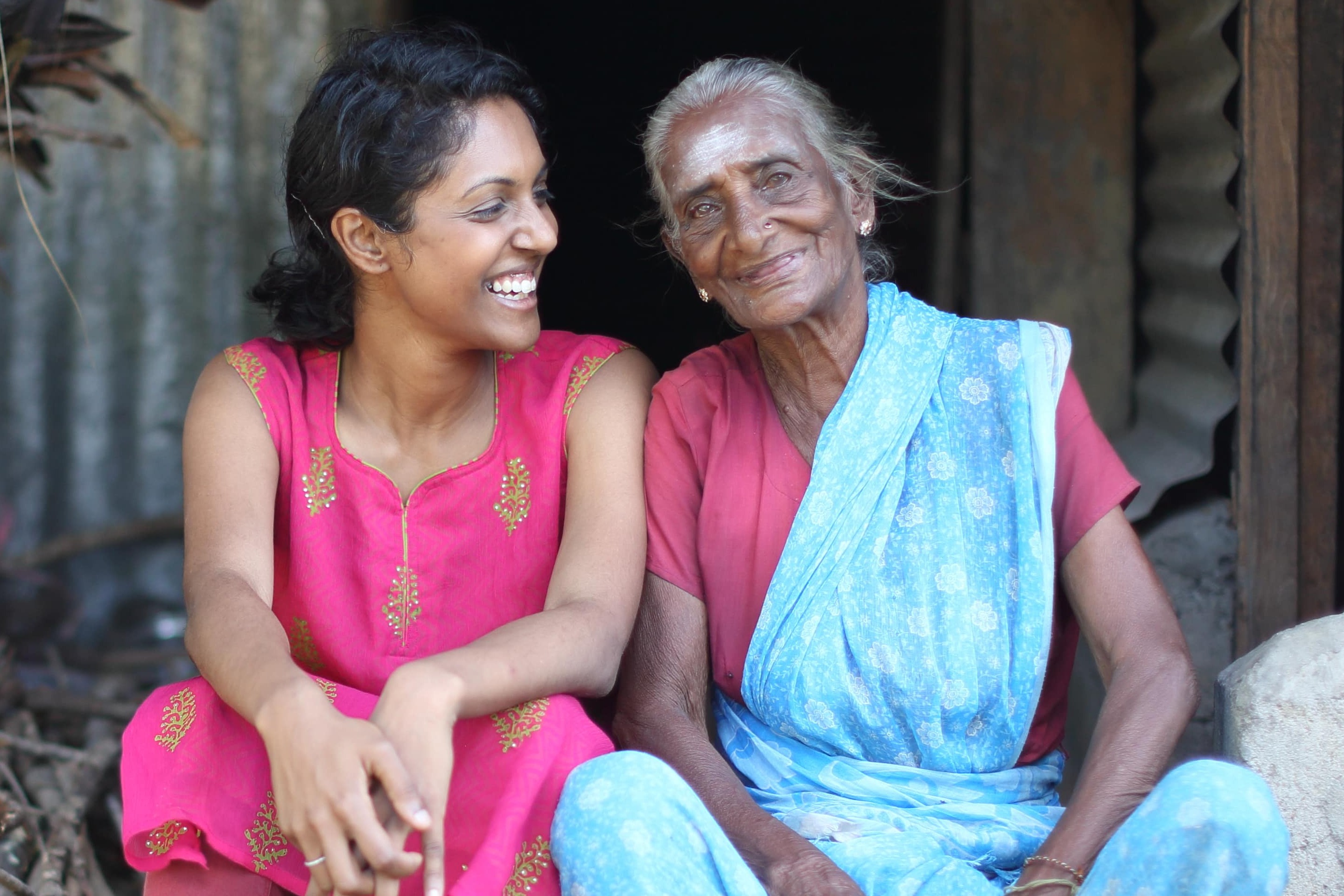
If you’ve been following Palmera, the Australian not-for-profit behind the “Handmade” cookbook, you might have come across a recent post from their Co-Founder. In it, Abarna and her husband Nish were reflecting on a year since they moved to Batticaloa so that Palmera’s most ambitious projects could take shape.
But what drives someone to go from working in corporate roles for over 8 years, to working to lift communities out of poverty in the most neglected parts of Sri Lanka? The answer to that goes back a few decades.
Discover how myTamilDate helps single Tamils find serious relationships on their own terms!
Abarna’s Early Life and Influences
Abarna’s family fled Sri Lanka in 1983 due to the war and eventually landed in Sydney. As she grew up, she would remain connected to her previous home through her parents’ efforts. Like the weekends spent making Tamil snacks with her family as part of catering fundraising initiatives, spearheaded by her mom. The funds raised would be sent to Sri Lanka to support different areas of need.
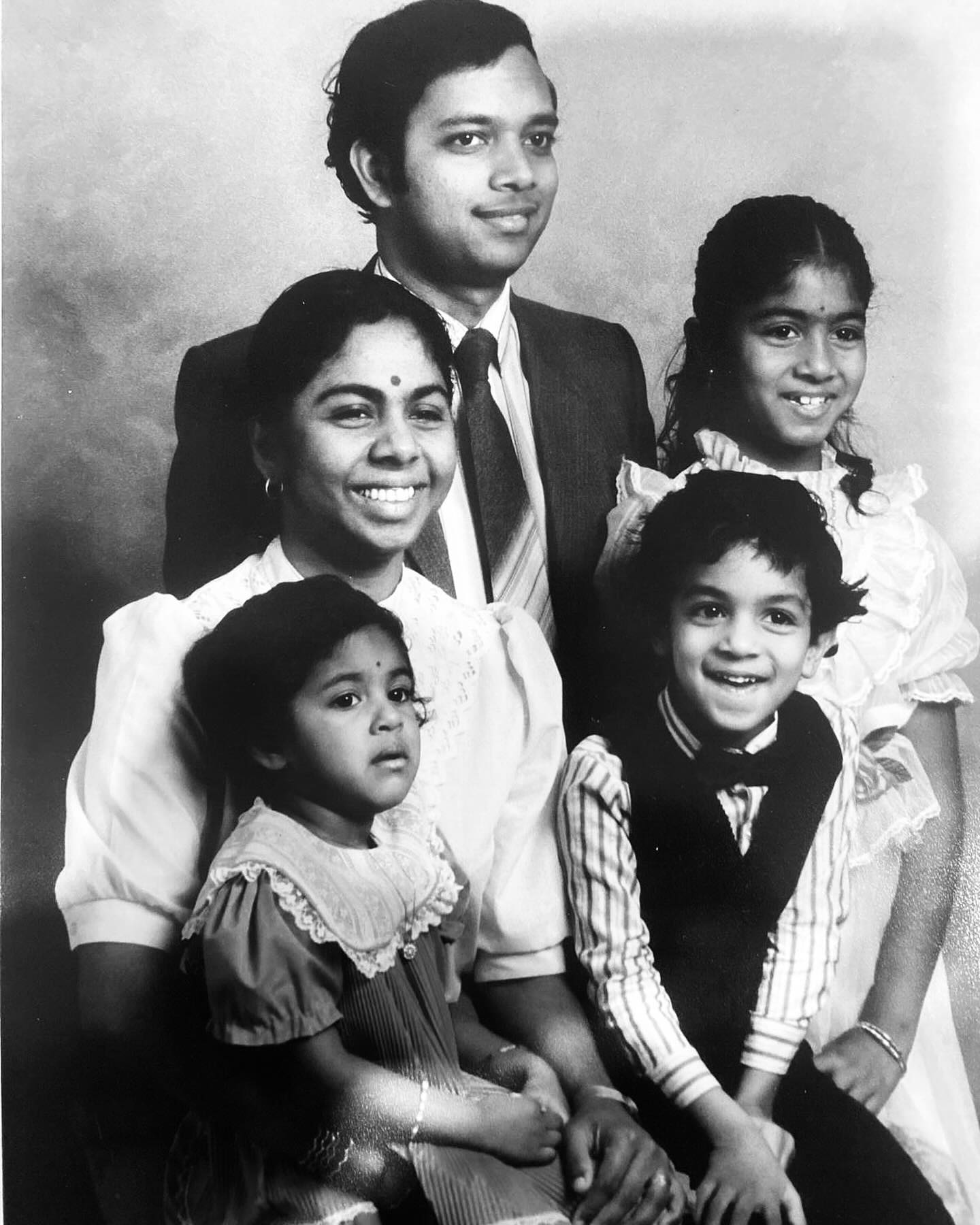
Fast forward to 2004, to being a university student in her final year of law. After years of hearing her parents speak of the news from Sri Lanka, Abarna decided to make a trip there with some friends. It was during the ceasefire, and they were going to teach English at a school in Northern Sri Lanka. So while they expected it to be eventful, there was no way they could have anticipated what came next.
A Defining Moment: The 2004 Tsunami
During their visit, the monsoon season had already raised water levels significantly when the tsunami struck. And when it did, the north was disconnected from formal communication, making it hard to understand what was happening.
Abarna and her friends had fortunately been protected in the Jaffna peninsula where they had been on a small boat. But as they were driving back to return home, they saw thousands and thousands of people on the road and came to realize the magnitude of what had happened. In the absence of adequate emergency supplies and resources, they quickly mobilized to help.
The Start of Palmera
After returning to Australia, with a desire to rally people around the humanitarian need in Sri Lanka, Palmera was formed. And soon after Abarna and her friends returned to Sri Lanka to carry out their first event –“Footprints to the Future” – mobilizing people to raise funds to support the needs in the aftermath of the tsunami. And despite witnessing immense devastation, Abarna saw firsthand how even small efforts could make a significant difference.
From thereon they began the work of engaging the Australian diaspora in their initiatives. And then, bit by bit, the diaspora around the world.
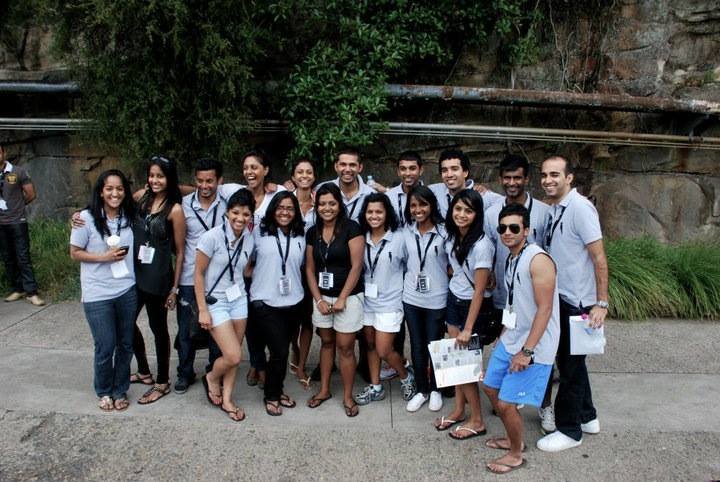
Since its earliest days, Palmera has had a model of giving a hand-up, rather than hand-outs, drawn on from the best practices of successful not-for-profits. Their focus very quickly became building stronger communities and empowering entrepreneurs in remote, and under-resourced parts of Sri Lanka.
In a distinct departure from organizations and initiatives that give out aid that forms dependencies, Palmera has focused on building capacity working with, and within the communities it serves.
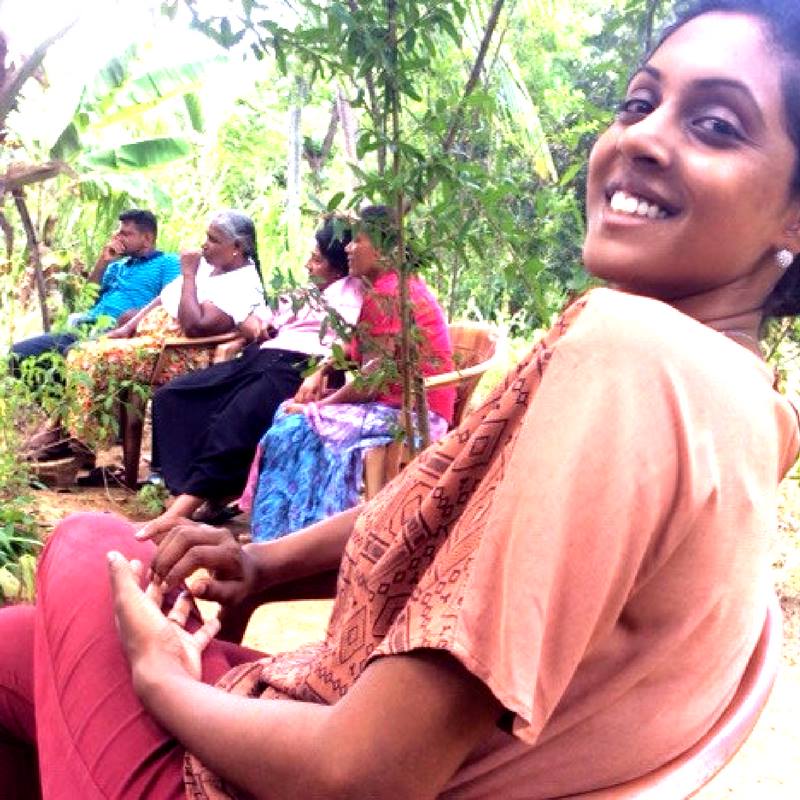
Building Sustainable Solutions
Over the past 20 years, from the effects of the tsunami, to the devastation of the war, to the pandemic and economic crisis, the need for support in neglected regions of Sri Lanka has remained immense. But so has the potential for positive change.
As Abarna continued to work with her team to identify the best practices and models to carry out their work, while also managing her full-time career, she likens the experience to anyone working on a side project that takes on a life of its own. Little by little the scope can become so much greater than you could have ever imagined when you began.
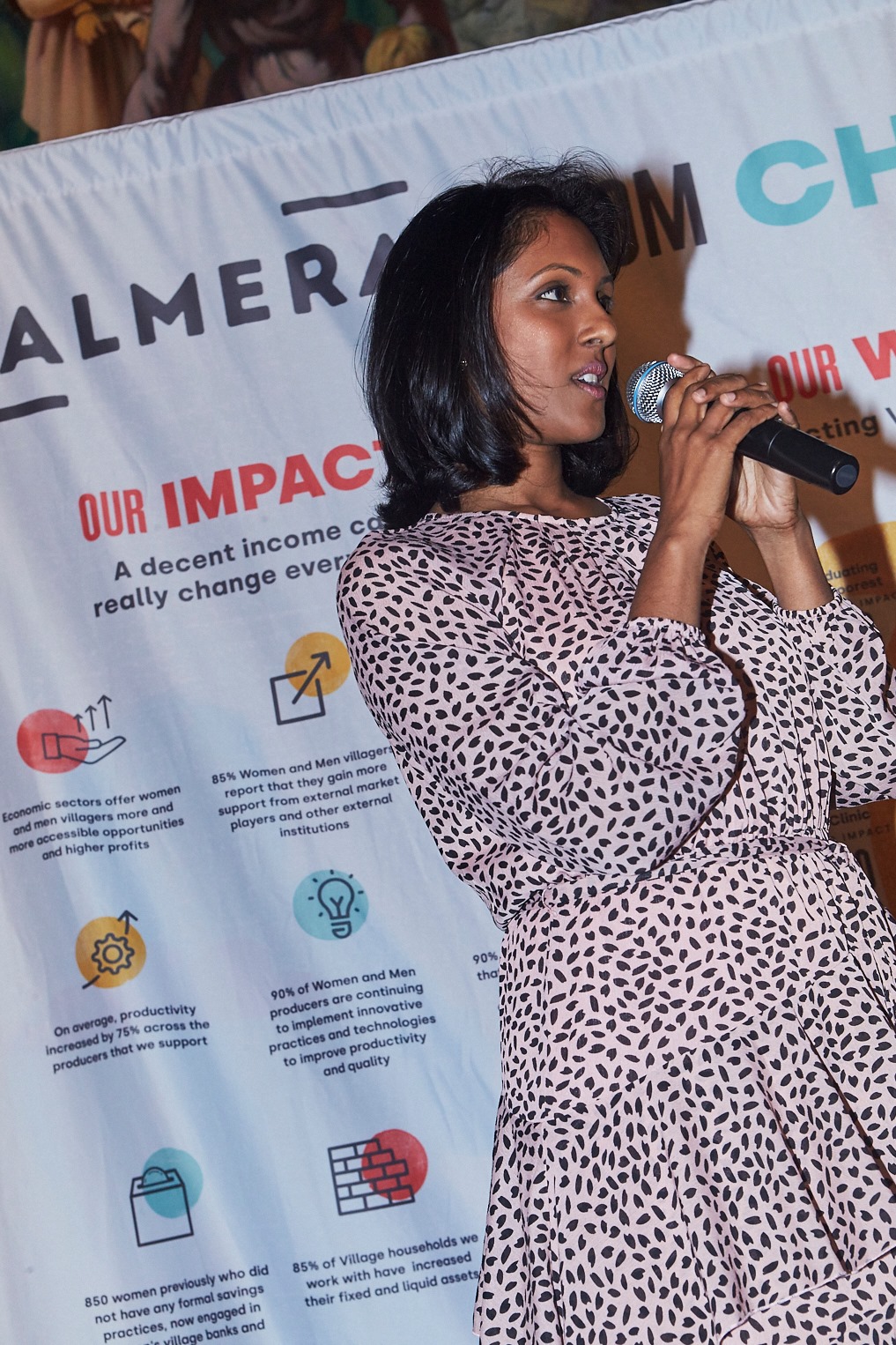
In fact, it wasn’t until she got married and her husband Nish (Palmera’s volunteer Website and Technology Developer) commented on how little she slept, that she realized that she needed more sustainable ways to keep the organization going. With all of this in mind, 9 years ago she made the pivotal decision to leave her corporate job.
“When I quit my job, it was, hey, for six months, let's just create something that's a more sustainable programming model and then I'll just go back to my job.”
The six months came and went, and there was just too much to be done, and too much progress made, to go back to the way things had been.
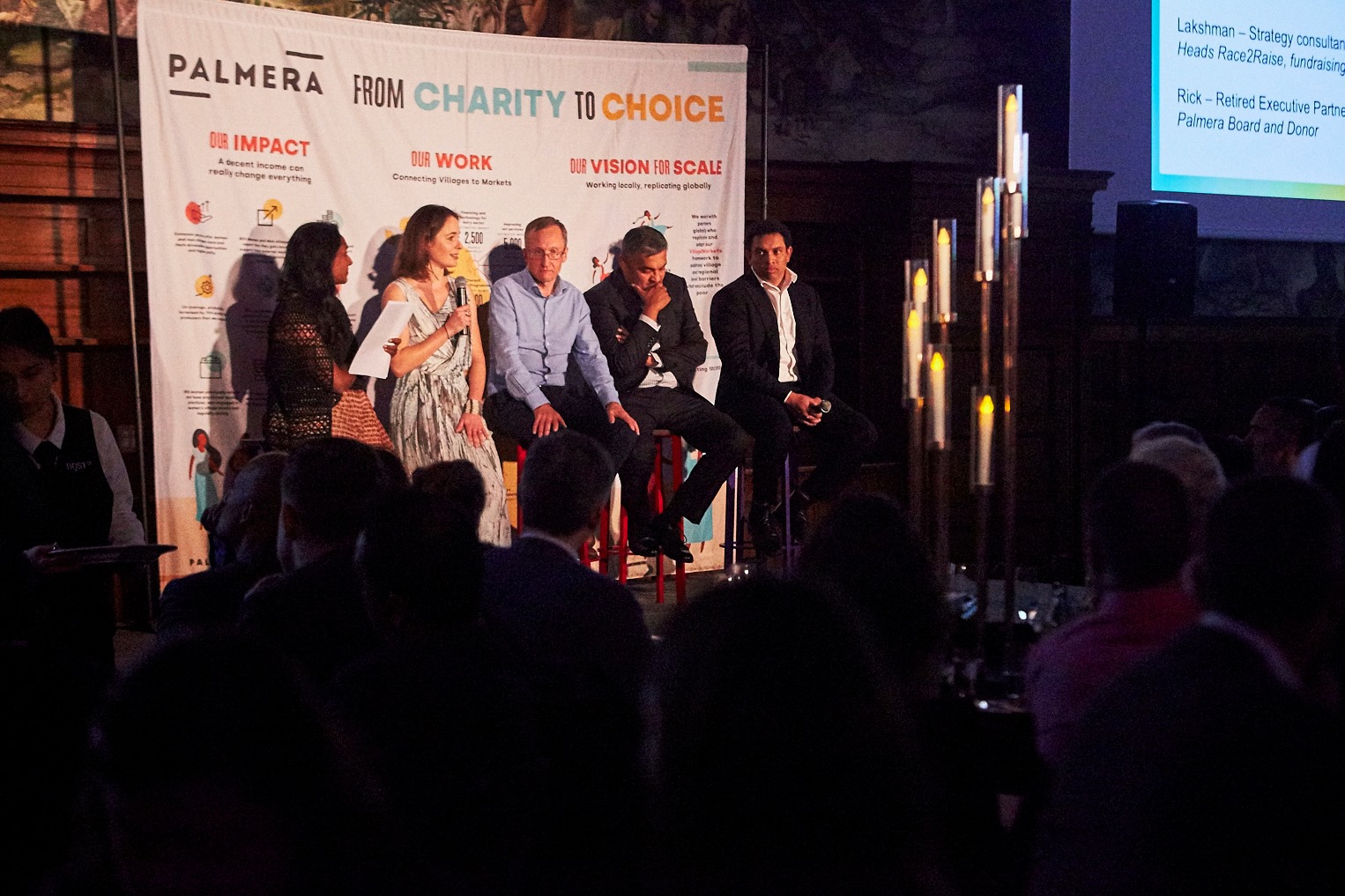
“Palmera is one of about 50 organisations that have achieved certification from the Department of Foreign Affairs (DFAT), of the Australian Government, as an international NGO with strong governance and transparency.”
The Village2Markets Approach
After carrying out several successful initiatives, and learning many lessons along the way, Abarna and her team set their sights on their most impactful project yet. They launched a pilot of their Village2Markets initiative from 2016 to 2020, focusing on the Mullaitivu district and 5,000 families.
Many families in Sri Lanka struggle with harsh realities such as malnutrition and predatory lending due to disconnection caused by repeated displacements. The Village2Markets approach identifies profitable market opportunities for these communities while providing training and resources necessary for engagement, and transforming the barriers that prevent access.
A key element of this strategy involves establishing women’s village banks that allow communities to retain income gains and offer loans as needed—helping prevent vulnerable families from falling back into poverty.
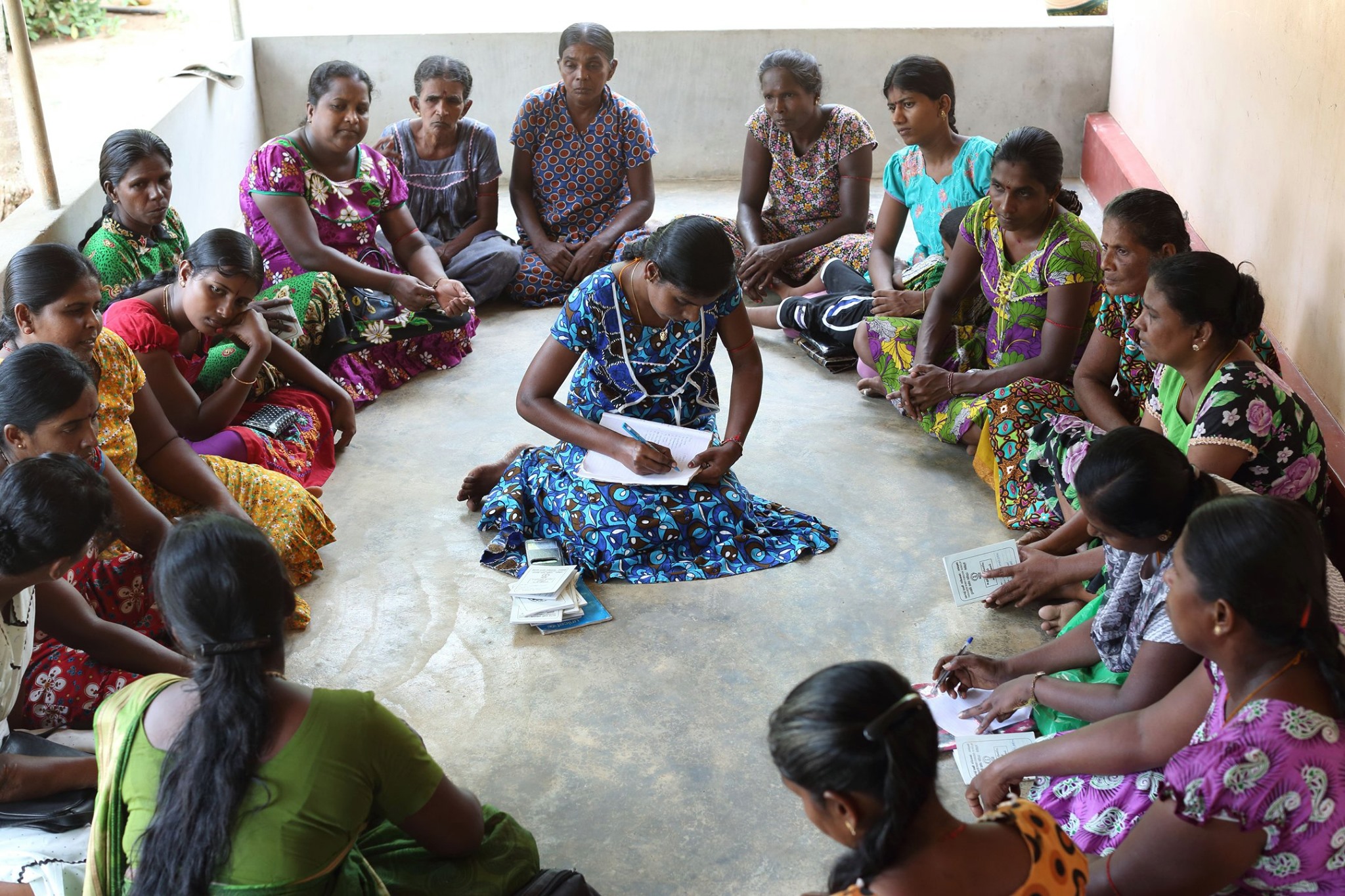
“We don't have any volunteers on the ground because this is not even a nine to five job.” Abarna explains. “This is like all weekend, all night because it's really hard work, rewiring systems. We'll stay in each village for three to five years and we hire our staff to run the programs at least 50% from the village and then in the surrounding district. The people in the village really understand the barriers because they live it every day. They've got the lived experience. ”
As for Palmera’s goals for their pilot and beyond? Ensuring that the communities they support can sustain themselves entirely on their own once Palmera’s interventions are complete.
The Village2Markets Documentary
In a compelling documentary, shot during the latter part of the pandemic and during the height of the economic crisis, the Palmera team captures some of the stories of their Village2Markets pilot.
In the face of even the most severe challenges, it’s clear how much hope and joy the pilot has led to. As person after person shares, Palmera has made it possible for them to face and overcome what they’d believed to be insurmountable obstacles.
Moving to Batticaloa
Following the pilot’s conclusion and anticipating future needs, Abarna and Nish decided it was time to move their family—including their two children—to Batticaloa. For years prior, Abarna had juggled an exhausting schedule flying back and forth between Australia and Sri Lanka. All this while trying to balance family life with her commitment to Palmera’s mission. Her laptop was nearly never out of sight, even making appearances in the delivery rooms while she was in labour.
As the extent of the burnout became undeniable, Abarna and Nish discussed what to do. They ultimately decided to make the move. Not only would it remove the element of having to go back and forth for Abarna, but Nish would be able to work remotely and it would give their kids a chance to see the important work that Palmera was doing.
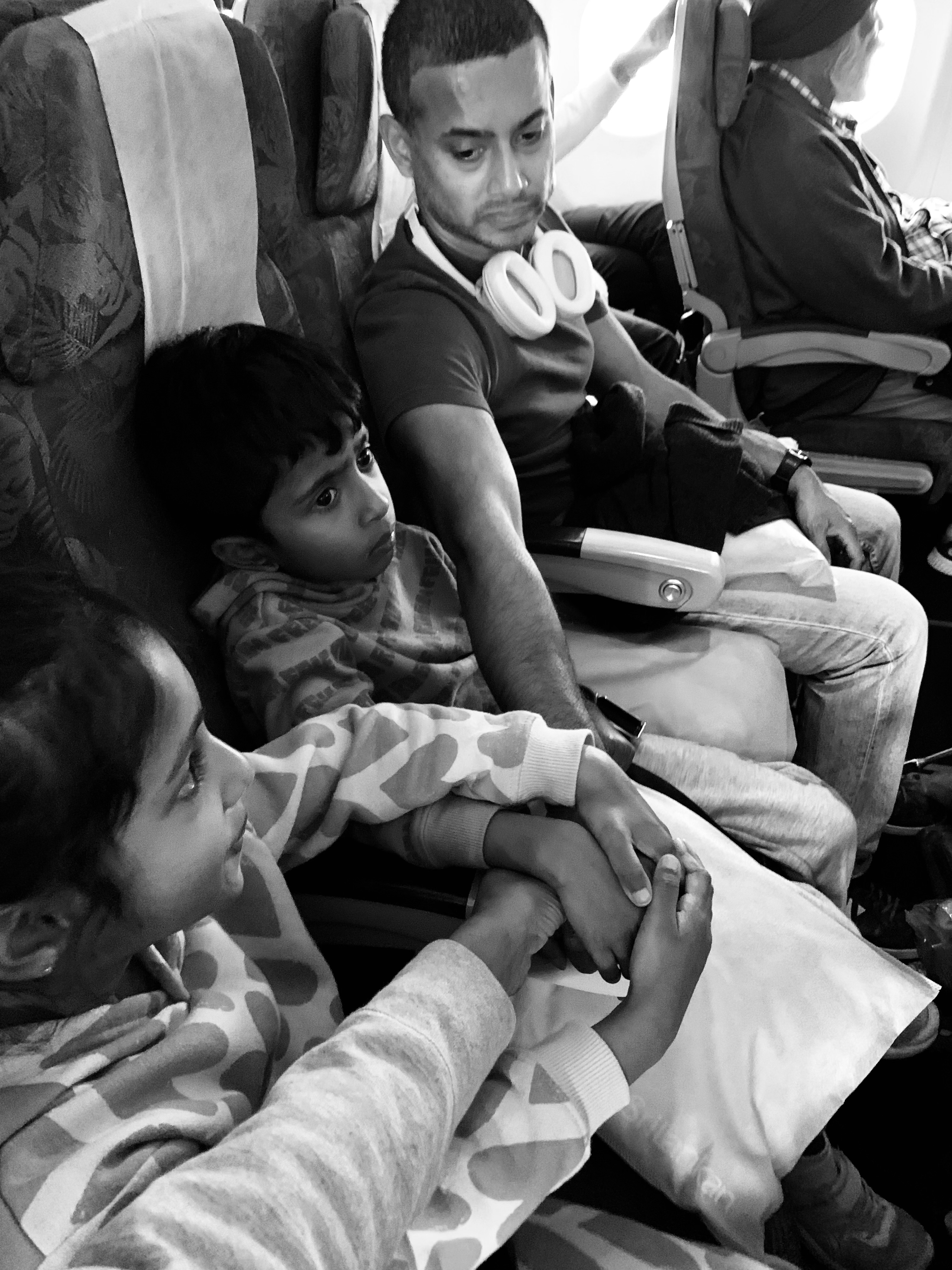
Reflecting on all this, Abarna says “I have had to go on a spiritual journey along with this service journey, to know what anchors me and why I'm doing what I'm doing.” And while their first year in Batticaloa has presented challenges—such as limited family support on-site and language barriers—Abarna emphasizes that it has also been incredibly rewarding.
“Batticaloa doesn't get a lot of tourists. There's not good mobility to the east. There’s no train, there's no private buses going. So the movement even to the main city is different. And it's really kind of pure.”
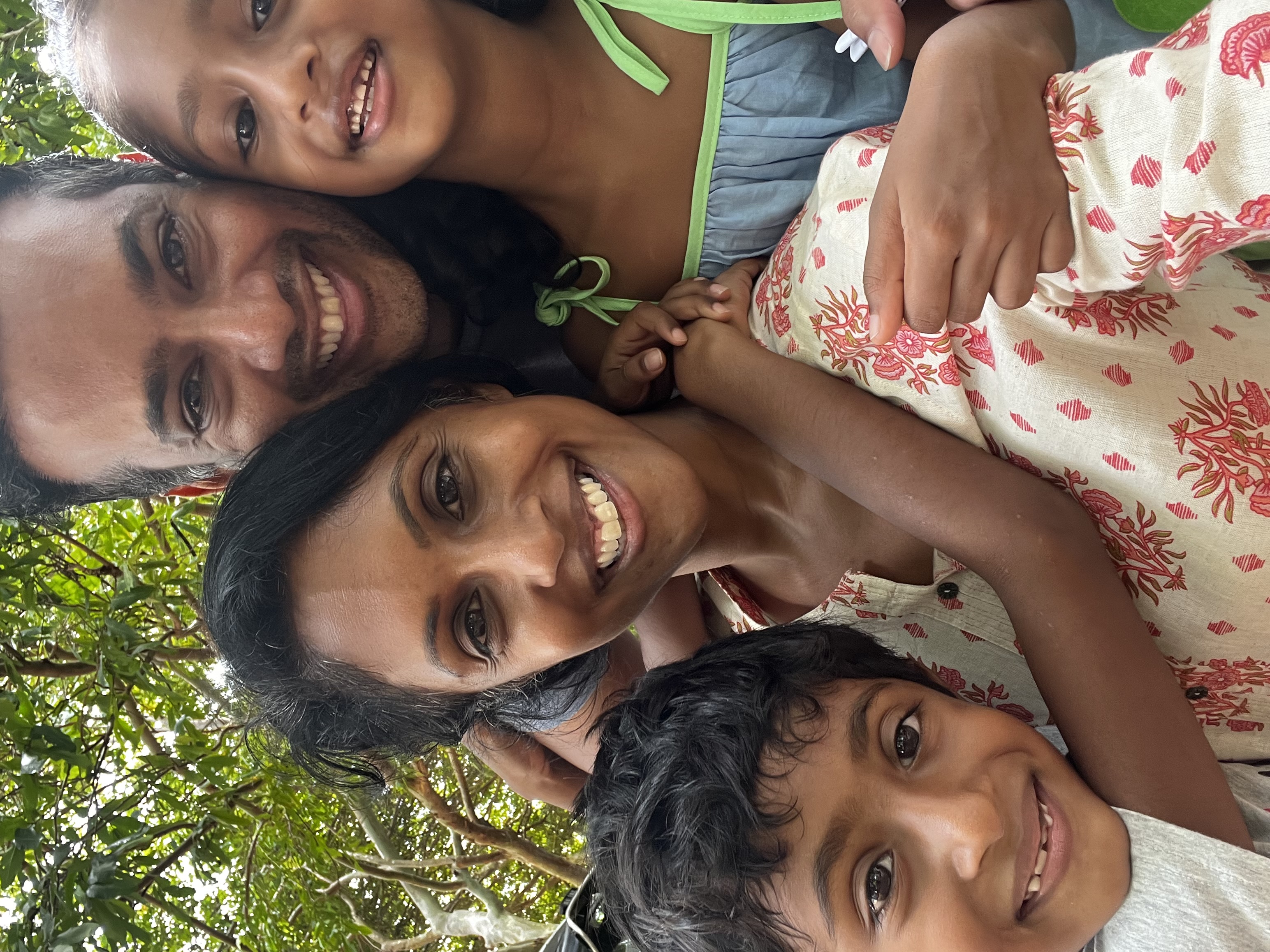
Palmera’s Continued Growth
Meanwhile, Palmera’s projects have continued to flourish, including their village banking initiative.
“Last year, across all our savings groups, they [participants in the program], from their own savings, revolved a fund of over one million US dollars.”
And that’s not all - Palmera is ramping up a campaign to sponsor and empower 800 families to sustain themselves in just 2 years with the powerful call to action of “One Entrepreneur, One Opportunity, One Backer To Change A Generation”.
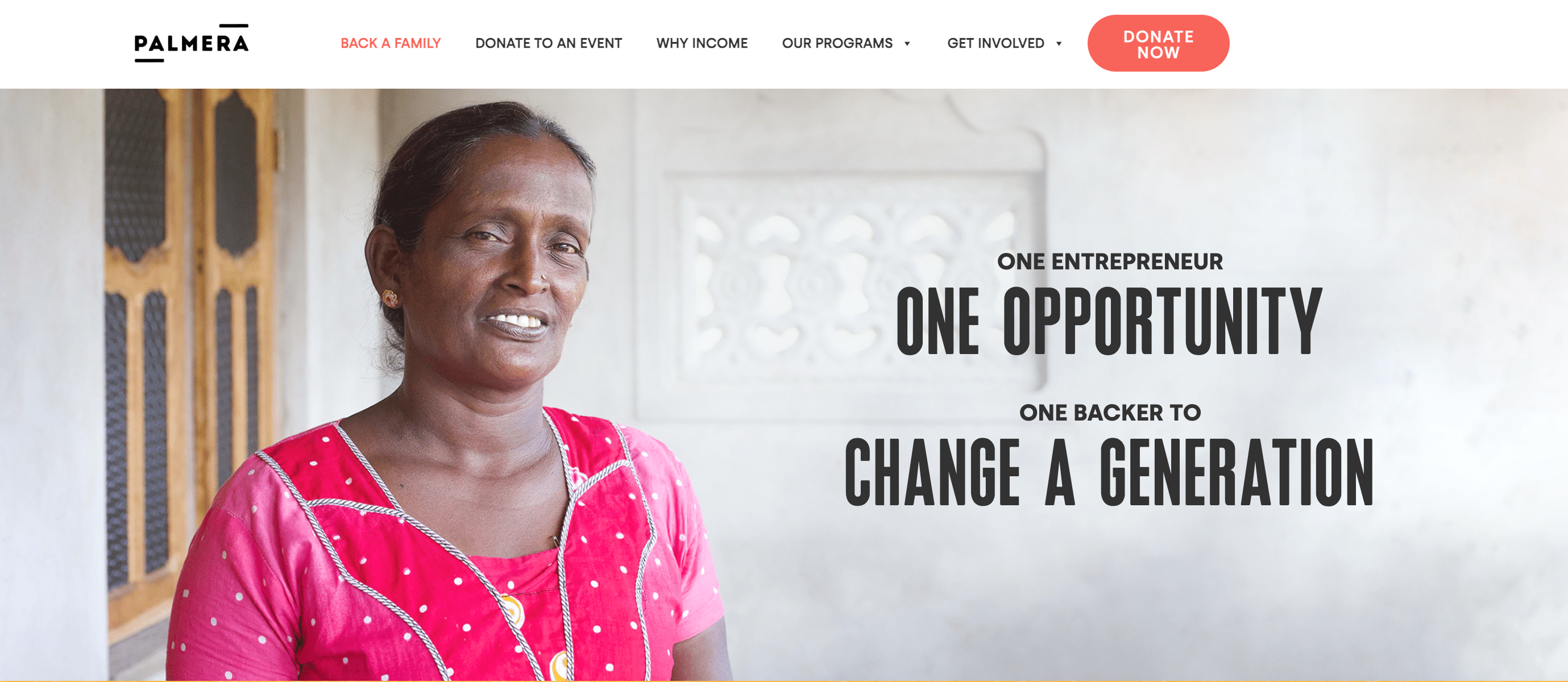
A Vision For Sustainability
For many of us in the diaspora we’ve seen countless initiatives, with great intentions, but unsustainable methods go through endless cycles of trial and error in attempts to make lasting change in Sri Lanka. And it can be very disheartening.
“Diaspora tends to take a hand out approach because many came out of a period of emergency. But it’s important to recognize that for the most part we are not in those periods anymore. What is needed are long-lasting solutions.“
To see an organization like Palmera that’s come so far, is a powerful testament to what can be achieved when we move beyond trying to solve one-off challenges, in reactive ways, to creating long-lasting generational change.
“For me, that's where my focus has been for the last eight years. How do we really have proven ways of working and how do we ensure that that gets disseminated to our staff and to the community in the right ways? Because this is an all or nothing game. When you take this approach, you can fully fail but if done well, you can get to a point where these communities can uplift and empower themselves.”
Want to learn more about Palmera? Here’s where you can find out about their current initiatives:
Sign up to be a cast member for Season 2 of our hit blind dating show - Dating While Tamil



























